Earlier this month, Facebook officially announced its implementation of hashtags, prompting both celebration and outcry from users. But the event also sparked a spate of critical analyses addressing the nature of conversations today, as well as the ways technologies facilitate and organize even the most banal ones. Love them or hate them, hashtags have become an overwhelmingly popular convention for pursuing those recurring questions: What's going on right now? And how should we make sense of it?
So the timing of this year's summer reading list—an annual opensource.com tradition—is particularly poignant, as our contributors draw attention to a medium that has for centuries played a crucial role in generating conversation and guiding debate. Our list of books, each recommended by a member of the opensource.com community, is the most diverse yet. But it explores the values (transparency, collaboration, sharing) and the questions (How and when does innovation occur? How do people organize to do great things? What important lessons can we learn from the past? How can we be sure we're building the right kind of future?) that have underpinned its predecessors. The authors featured here seem to be on the pulse of something that promises to radically change the ways we live, work, learn, play, and create—even if they lack a common hashtag for it. Perhaps without intending to, they've contributed to our understanding of the #opensourceway.
This summer, as we ponder the effects of yet another technology meant to help us track, sort, and ultimately cope with an increasing amount of fleeting chatter, our community reminds us that some conversations—and the ideas they foster—endure.
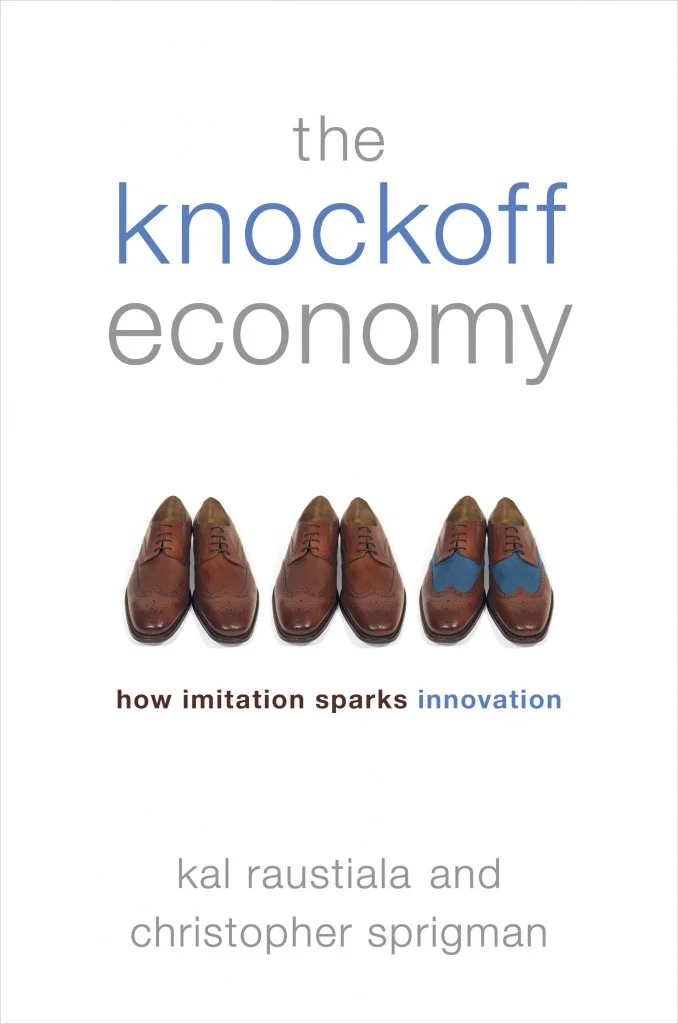 The Knockoff Economy
The Knockoff Economy
by Kal Raustiala and Christopher Sprigman
recommended by Rob Tiller
What is the relationship between innovation and copying? Many of us think "innovation" means complete originality, and "copying" means unoriginal, unfair, and even criminal. Our copyright system largely reflects this view by prohibiting many kinds of copying. In The Knockoff Economy, Raustiala and Sprigman show that reality is more complicated, and also more interesting.
In challenging the conventional view that innovation necessarily requires copyrights and patents, the authors look at some highly innovative fields that do not have IP protection. These include fashion (designers can't copyright dresses), cooking (chefs can't copyright recipes), and football (it's legal to copy another team's plays). Even without IP rights, creative people in these fields constantly innovate and prosper. The authors also recognize open source software as an area that is both tremendously innovative and deeply reliant on copying.
The Knockoff Economy argues that "innovation is often an incremental, collective, and competitive process in which the ability to build on existing creativity is critical to the creation of new and better things ... Since few creations are entirely new, laws that prohibit copying can block as well as spark innovation. The flipside is that open and easy copying can spark as well as block innovation."
With lots of fun examples of celebrity designers, TV personalities, chefs, comedians, and coaches, The Knockoff Economy is highly readable. In showing that imitation is intertwined with innovation, it flips the conventional wisdom of IP law on its head. Open source-minded readers will find some of this familiar, but some will be fresh, surprising, and entertaining.
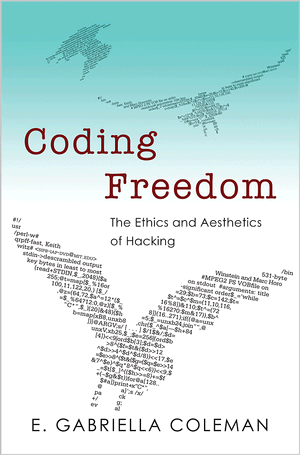 Coding Freedom
Coding Freedom
by E. Gabriella Coleman
recommended by Bryan Behrenshausen
Around here, we say it every day: open source is not simply a technical decision or a legal distinction. It's a way of life. Anthropologist Gabriella Coleman believes this too–especially after she lived for three years with developers on one of the world's most prolific open source projects. Coding Freedom is the fruit of her fieldwork, and the book stands as a truly unique contribution to the popular literature on the open source movement and the values that motivate open source programmers (or "hackers," to use the term they prefer).
In hackers' daily lives–in the late-night coding sessions, the high-intensity conferences, and the contentious debates on listservs and in coffee shops—Coleman glimpses something vital: "the incomplete, sometimes fraught, but nonetheless noticeable relationship between hacking and liberalism, and the transformations and tensions evident within the liberal tradition and computer hacking." Hacking, it seems, is an expressly political act. Case in point: Coleman writes that hackers have played a pivotal role in attempts to make code (and coding) a matter of speech rather than property. And to do so, they playfully tweak (as hackers are wont to do) the language associated with each pillar of liberal political philosophy.
Coding Freedom explores precisely what makes the open source way so critical to our contemporary cultural and political moment—the way it functions as an ethic, a collection of principles and practices meant to guide not only our thoughts and actions but also our relations with others. This isn't a book about the technicalities of licensing agreements; it's a book that describes how those licensing agreements disclose something about the worlds we strive to make together.
Coleman blends political theory, data from ethnographic fieldwork, and personal accounts of life with programmers into a compelling summer read. Coding Freedom is available as a Creative Commons-licensed download.
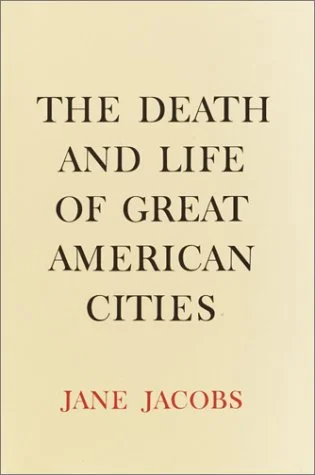 The Death and Life of Great American Cities
The Death and Life of Great American Cities
by Jane Jacobs
recommended by Dave Neary
This book predates the modern computer industry. It comes from the field of city planning. But it is full of astute observations about the nature of communities, and what can turn a good community bad (or vice versa). Jacobs' recipe: a variety of primary uses, ensuring a constant flow of people in the neighborhood, combined with some basic patterns that allow people to meet often (small squares, short blocks), and constant incremental renewal—all of which are excellent practices for open source projects, too.
We sometimes forget that communities predate online communities, so from time to time it is good to go back and learn some lessons from sociologists, architects, and city planners of the past—who knew a thing or two about how communities organized themselves.
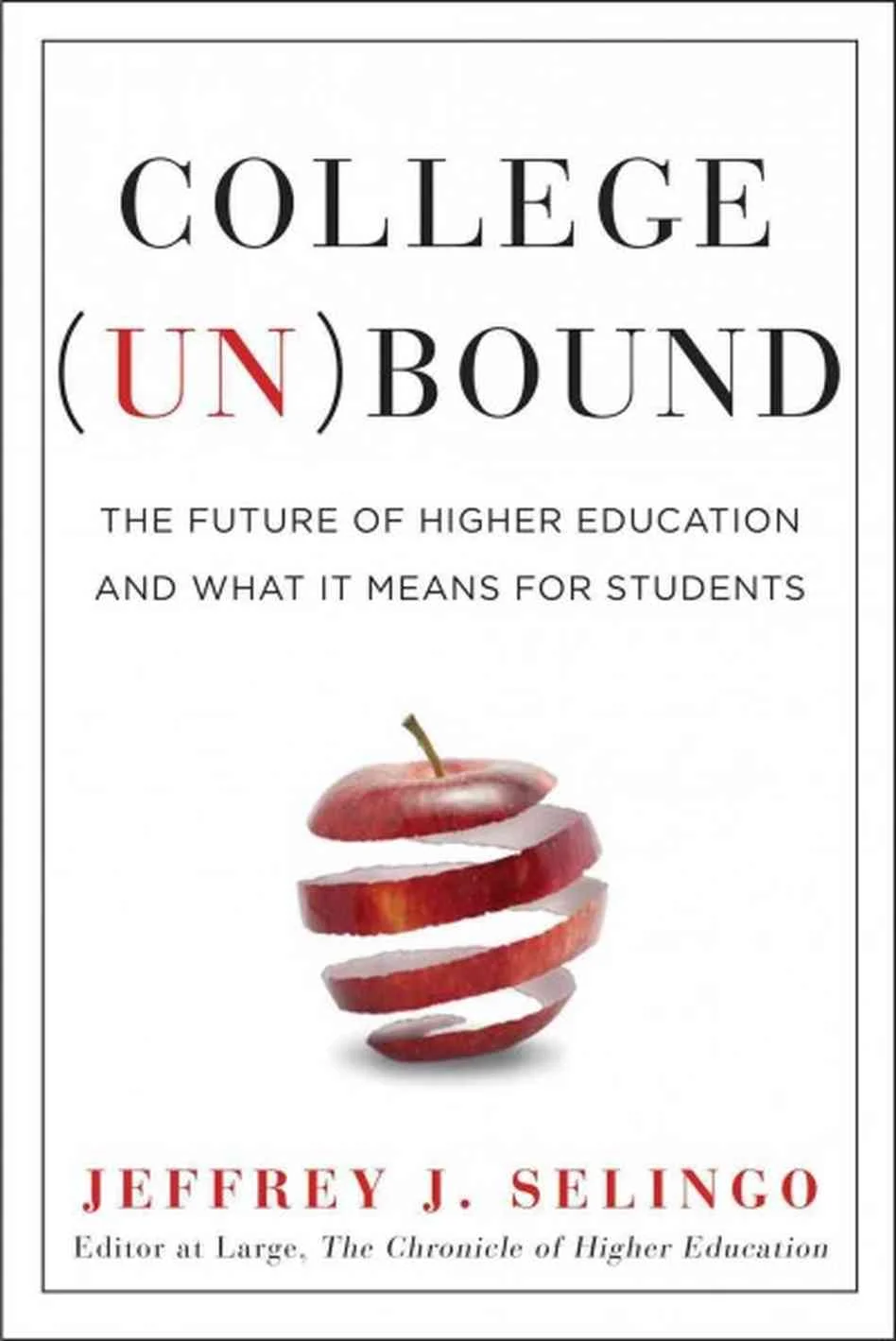 College (Un)Bound
College (Un)Bound
by Jeff Selingo
recommended by Carolyn Fox
Jeff Selingo's College (Un)bound is a wake-up call for the broken state of higher education and a look at what the future holds for it. The book provides a quick history of our higher education system before arguing why it isn't a sustainable model for neither today nor our future. It points out the obvious: student-loan debt has surpassed the $1 trillion mark, and with job prospects shaky, people are beginning to question the value of a college education. Selingo asks: "Is a college education still worth pursuing at any price?"
As editor at large of the Chronicle of Higher Education, Selingo demonstrates authority and credibility as he declares the current state of higher education system broken and predicts how open technology will transform institutions for the better. Free, massive online open courses (MOOCs) and hybrid classes will push colleges to unbundle the traditional degree credit system and make a college education more affordable. Tailored lesson plans delivered through digital technology will become increasingly available and offered as a way to engage learners and decrease costs, too.
Selingo is best at articulating the glaring problems with higher education: exorbitant costs, a credential race, the use of lowly paid adjuncts, lectures remaining the primary method of instruction, low graduation rates, the lack of actual learning in higher education, and higher education's struggles at grappling with the transformations digital technologies have introduced into our lives. He argues that MOOCs will increasingly be used as an alternative admission route; they will be a cheaper and easier way for higher institutions to discover talented students or the diamond in the rough. Time will tell whether higher institutions will find an accountable system or a way to assign credit for learning through MOOCs. Meanwhile, readers may find students' lack of intrinsic motivation and self-satisfaction to be the bigger problem to which Selingo alludes.
Anyone confronting college or considering shelling out in excess of $200,000 on tuition might want to peruse College (Un)bound. Any parent, anyone in higher education, or anyone in the teaching profession will find this book deserves merit and consideration.
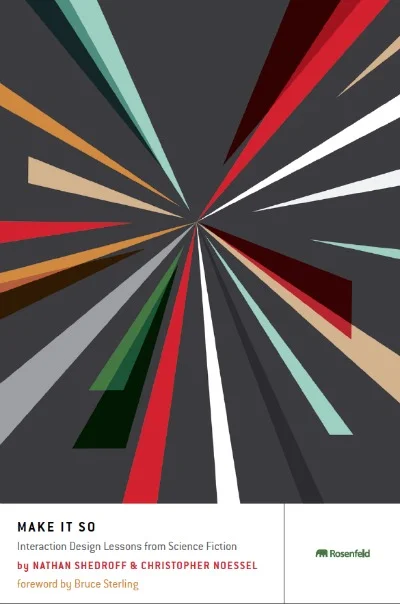 Make It So
Make It So
by Nathan Shedroff and Christopher Noessel
recommended by Joshua Holm
Make It So: Interaction Design Lessons from Science Fiction looks at user interfaces from a variety of science fiction movies and television shows in an attempt to answer the question: "What can real-world interface designers learn from the interfaces found in science fiction?" Going all the way back to Georges Méliès's "Le voyage dans la lune" (1902), Nathan Shedroff and Christopher Noessel explore more than a century of science fiction in their quest to provide an answer to that question.
The book consists of two major parts, the first of which covers the core elements of sci-fi user interfaces (mechanical controls, visual interfaces, gesture-based interfaces, etc.), while the second part examines sci-fi interfaces and human activities (e.g., communication and learning). As technology in the real world changes with the increasing prevalence of smartphones and tablets, and with the changes in user interface design brought about by Gnome 3, Unity, and (in the closed source world) Windows 8, Make It So provides valuable lessons from the future of the imagination for interface designers building the real future. Make It So is a fascinating read for anyone interested in science fiction and/or human-computer interaction. The authors continue their exploration of sci-fi interfaces at the Make It So blog.
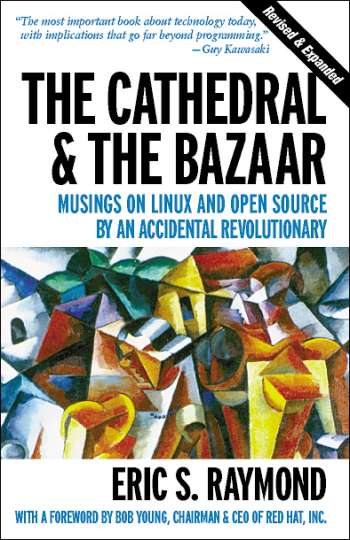 The Cathedral & the Bazaar
The Cathedral & the Bazaar
by Eric S. Raymond
recommended by Jason Hibbets
I remember reading The Cathedral & the Bazaar manifesto many years ago, because I wanted to get a better understanding behind the principles and guidelines for creating open source software. But until recently I'd never read the full story. For those of you unfamiliar with the meaning of the book's title, the "cathedral" is the traditional way to develop software—limited resources (and therefore limited ideas and collaboration) and walled gardens, all usually controlled by a single organization or company. The "bazaar" is essentially organized chaos. It represents the open source development model.
The book walks you through Eric S. Raymond's software development story. It's easy to just read the manifesto and start to draw your own conclusions. But when I took the time to read the entire story, the book filled in a few gaps and provided excellent insight into how open source communities operate, thrive, and evolve. I would recommend this to anyone who wants to fully understand the intricacies of the open source software development model. And if you're not technical, Raymond does you a great favor by telling you that the upcoming content is about to get geeky, and that you should feel free to skip ahead.
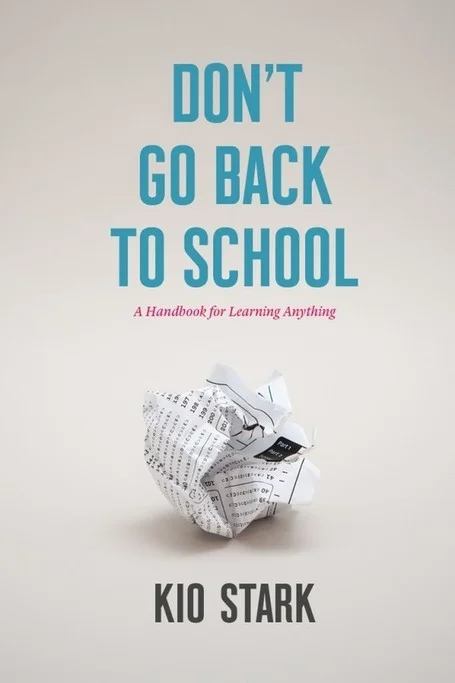 Don't Go Back to School
Don't Go Back to School
by Kio Stark
recommended by Carolyn Fox
Kio Stark's Don't Go Back to School is essential reading for those who are independently learning and thinking about how to pursue an open education outside formal school or college. Stark provides extensive research and more than 100 interviews with independent learners who have successfully managed to carve out their own alternative paths of learning and exciting careers. For those nervous or apprehensive about veering away from traditional schooling, this book will help to alleviate those fears and anxieties. It is an inspiring, practical guide that gives concrete strategies and resources for getting started as an independent learner.
Unschoolers and those debating whether to pursue college or trade school will particularly relish this book. However, everyone ultimately has a vested interest in the overall message here: there are many ways to acquire knowledge and training, and school does not have a monopoly over learning. To date, the options to connect independent learners to each other and to network without going to school are limited, but this is changing, as Stark notes. Opportunities for apprenticeship training or non-traditional credentials are hampered, too, without the ready-made community that formal mentorship or schooling provides. But many interviewees were not discouraged by this fact and show how to overcome it.
Don't Go to School may send shivers down readers' spines when it presents them with so many learning options—from independent-yet-social learning through the open source way. Once readers stop and think that learning need not be linear, confined to brick-and-mortar institutions (or even to MOOCs), the sky becomes the limit. Not only is the range of interviewees in this book impressive, but the range of alternative, non-traditional methods of learning is also staggering. Convergent thinkers might pause in places with an emphasis on non-sequential learning. However, divergent thinkers and true open source revolutionaries will be doing high fives in their sleep over it—and feeling less alone and isolated.
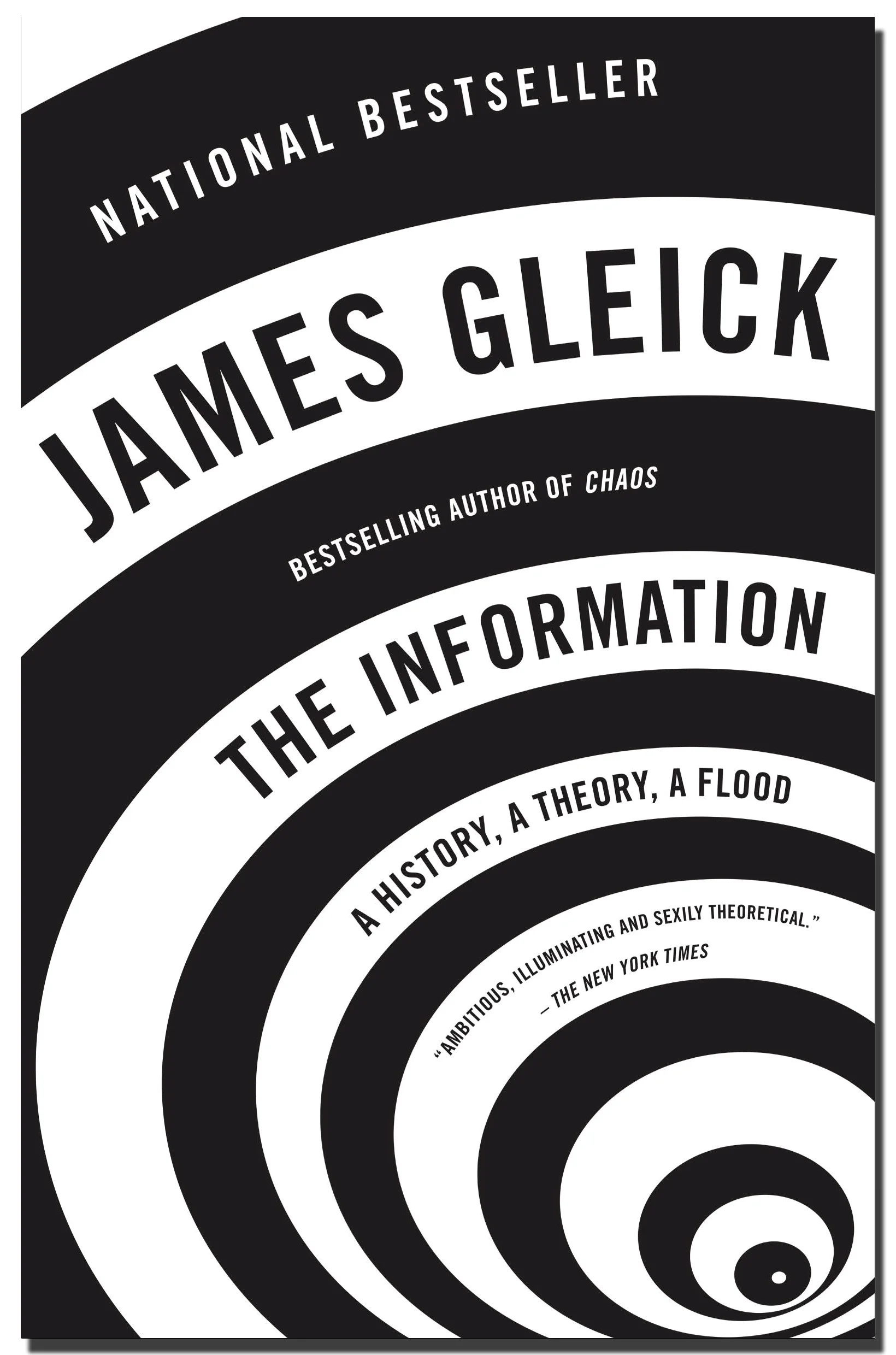 The Information
The Information
by James Gleick
recommended by Kendra Mack
In open source communities, we often speak of the need for information to be free. But have you ever thought about what exactly defines "information"?
James Gleick's The Information: A History, A Theory, A Flood explores the many innovations and theories that have shaped the information age we live in today. In particular, the book focuses on how Claude Shannon's introducing the term "bit" as the smallest unit of information in 1948 revolutionized how we think about information and paved the way for the digital era.
Gleick takes readers through an expansive history of communication technologies—starting with African talking drums and ending with the future of quantum computing. In between, the book covers the dictionary, the telegraph, Babbage's Difference Engine, the telephone, and much more. But the book is far from a linear history of names and dates. It's really an exploration of the human experience. Gleick demonstrates that when information became something quantifiable—in bits—it opened minds to new ways of thinking about biology, genetics, psychology, and overall human existence.
While the breadth of this book may seem daunting, it's written for a general audience and explains complex theories with clarity. It's an enlightening read and highly recommended for anyone who cares about the openness of information.
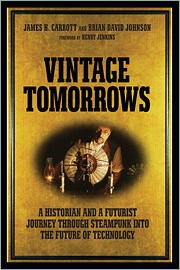 Vintage Tomorrows
Vintage Tomorrows
by James H. Carrott and Brian David Johnson
recommended by Ruth Suehle
With its antique-yellow color, Vintage Tomorrows stands out in a display of its publisher O'Reilly's usual black-and-white. The subtitle explains this difference quickly: "A Historian and a Futurist Journey Through Steampunk Into The Future of Technology." As a steampunk fan, I was already interested. What I didn't know when I picked it up was how much open source I'd find inside.
The book starts with the hippies and beats and 60s counterculture—Ginsberg, Kerouac, Leary—names existing long before anyone thought of the word "steampunk." But then we move to the present and maker culture, to the desire to have control over your things, to be able to fix them and change them—to not be constrained by things that you can use only in the way they were designed to be used.
Through the book's interviews, we meet Thom Becker, owner of an once-open-source steampunk design label. Libby Bulloff explains how "steampunk has the potential to really grow open source and maker culture if people let it."
As it turns out, steampunk's roots and ideals are quite the demonstration of open source culture. Vintage Tomorrows uses it to look at where we've been, technologically speaking, and where we're going. "Keep an eye on the makers and the hackers, the builders and the artists," Carrot and Johnson write. "It’s going to be awesome."
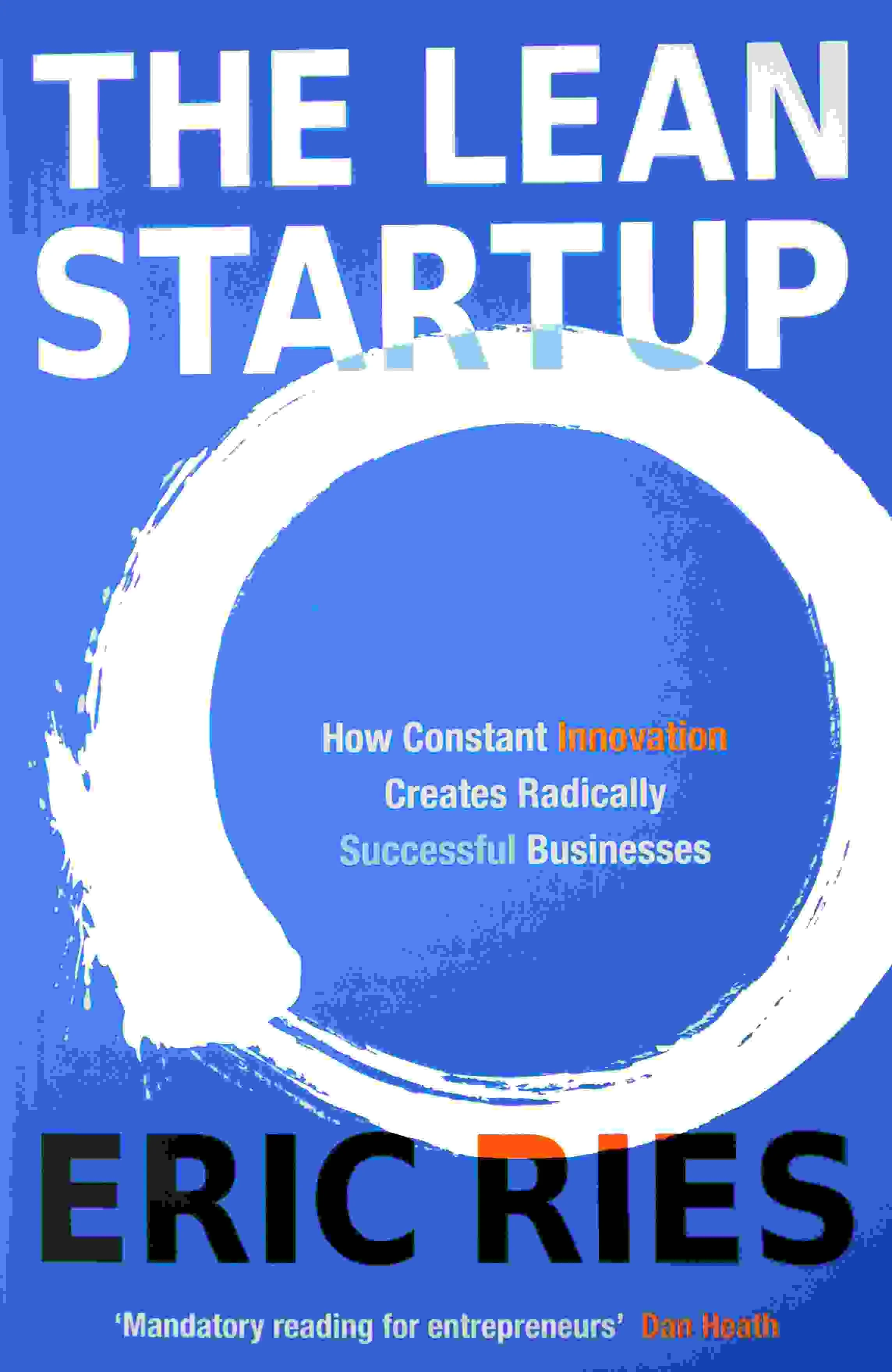 The Lean Startup
The Lean Startup
by Eric Ries
recommended by Jeff Mackanic
This is a book for anyone in any company who wants to be an agent of change. Don't let the title fool you. This is not a book about startups; it's about being an effective leader in any institution.
The book revolves around a product development team that spends six months developing its product. On launch day, no one even tried the product. It's a total failure. How could the developers have avoided six months of potentially wasted effort? The answer is the Minimum Viable Product (MVP). Ries recommends getting a product into the market as soon as possible to begin testing your assumptions. Does the market even want the product you are creating? The sooner you can get the answer to that question, the better. Don't wait to have a perfect product; get it out there early and learn.
The next major section is about testing and measurement. Adding a new feature is exciting, but did that feature move the needle? Before you add a new feature, determine what you expect to see and then measure to see if the expected results happen. Involve everyone in this—engineers, marketing, sales, and leadership. The goal is not shipping a new feature. The goal is building a better product that meets a customer need.
This is a great book with practical advice on how to quickly build products and services that will resonate with your customers: "The big question of our time is not 'Can it be built?' but 'Should it be built?'"
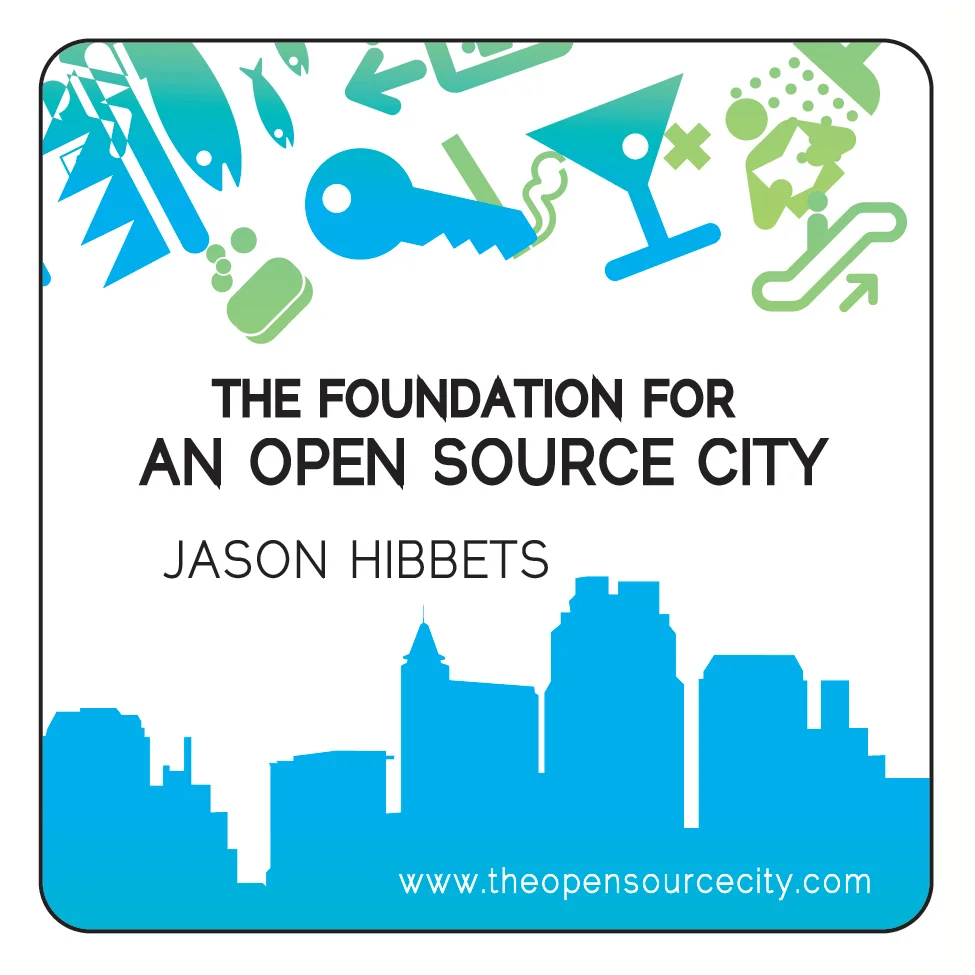 The foundation for an open source city
The foundation for an open source city
by Jason Hibbets
recommended by Ginny Skalski
If you've ever wanted to improve local government, then this is a book that will inspire you to feel that you can absolutley make a difference. The foundation for an open source city shows you what you can do when you apply the principles of open source outside the traditional software industry.
From getting your city to pass an open government resolution to organizing your city's very own CityCamp, this book uses Raleigh, NC as a proof point that any group of motivated citizens working with engaged elected officials can lead the charge for more openness in local government.
If you're a regular reader of opensource.com, you'll recognize the book's author: Jason Hibbets, the lead administrator and community manager for this website. When Jason's not at work, he's incredibly active in Raleigh city government. In his book, Jason shares his personal journey toward becoming an expert citizen, outlining the specific steps he and other collaborators took to help put Raleigh on the path to being one of the most open digital cities in the United States.
You'll learn how a citizen-led, open source approach can make a city more transparent and accountable, and ultimately lead to tangible results. Government and business officials will also learn how open government can boost economic development efforts.
It's easy to complain about local government. It's easy to feel like nothing will ever change. But The foundation for an open source city leaves readers feeling it's easy to get involved and make a difference.

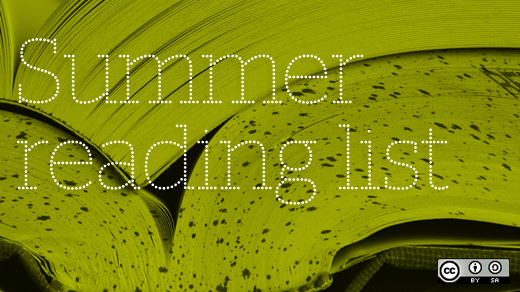

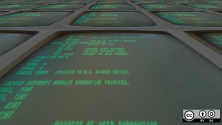
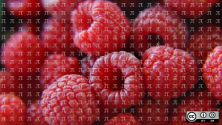
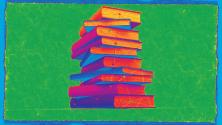

11 Comments